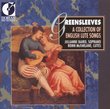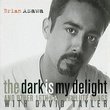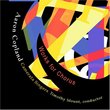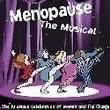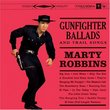| All Artists: Juan de Anchieta, Spanish Anonymous, Joan Baptista Comes, Juan del Encina, Luis de Milan, Alonso de Mudarra, Lucas Ruiz de Ribayaz, Spanish Traditional, Terra Nova Consort Title: Baylado: Music of Renaissance Spain Members Wishing: 1 Total Copies: 0 Label: Dorian Recordings Release Date: 10/30/2001 Genres: Special Interest, Pop, Classical Styles: Vocal Pop, Opera & Classical Vocal, Chamber Music, Historical Periods, Baroque (c.1600-1750), Classical (c.1770-1830) Number of Discs: 1 SwapaCD Credits: 1 UPC: 053479029829 |
Search - Juan de Anchieta, Spanish Anonymous, Joan Baptista Comes :: Baylado: Music of Renaissance Spain
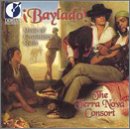 | Juan de Anchieta, Spanish Anonymous, Joan Baptista Comes Baylado: Music of Renaissance Spain Genres: Special Interest, Pop, Classical
|
Larger Image |
CD DetailsSimilarly Requested CDs |
CD ReviewsA Stirring Rendition gaios33 | Berkeley, CA | 12/18/2001 (5 out of 5 stars) "Ah, at last! I have been waiting breathlessly for the Terra Nova Consort's second CD ever since I purchased the first one (Renaissance en Provence) when it first came out. And their second outing into the world of Renaissance Mediterranean music certainly does not disappoint. According to their liner notes, their aim with this album is to explore the popular music of the Northern Spanish courts as it might have sounded had it travelled into Andalucia. And so we get amazing and fiery performances of many familiar songs from the 15th and 16th c. cancioneros, as well as some traditional music that wouldn't sound out of place to the Renaissance aesthetic. Guitars strum up a storm, castanets and tambourines beat away, and the violin and recorders provide a bright commentary on the melodies--and then the vocalists grind and soar above it all, sometimes in passionate harmony, sometimes in sparkling heterophony, and sometimes in virtuosic solo display, all inspired by the traditional vocal practices of Southern Spain. I have never come across a recording of this repertoire that so fully captures the spirit and the rhythmic and emotional potential of the music." No se cantar, ni taner, mas un poco jugaria... Maddy Evil | London, UK | 07/30/2005 (1 out of 5 stars) "This recording attempts to give a portrayal of Spanish music from the beginning of the 16th century, drawing upon works by some of the best known composers of the period, notably Encina, Anchieta and Milan. Sadly, however, the emphasis here lies on 'attempts'. Whilst this revelation may prove to be a complete disappointment for some, it must be said that NOT ONE scrap of contemporary evidence even vaguely supports the latent, outdated assumptions here that: 1) a kaleidoscopic jamboree of instruments must have participated (on which note, the violin and sopranino recorder do not appear in Spain until much later into the 16th century), or that 2) Moorish and Flamenco traditions were an innate, integral feature of this repertoire (cue those insightful liner notes, p.9 - 'we have a really cool Turkish drum'). Apparently, the aim of this recording is to demonstrate how Cancionero music might have sounded if it had travelled south...yet no explanation is ever offered as to why (or indeed how) Castilian court music would have been absorbed by the Al-Andalus oral tradition. In addition, whereas other groups using large (and anachronistic) forces create performances of superb quality (such as the Harp Consort or Hesperion XXI), here, suspect musicology is complemented with some decidedly amateurish interpretations, perhaps most obviously in the rasping, Michael Morrow/Asturian-inspired vocals (...ya cantan los gallos...???). To top and tail it, errors abound in orthography (tracks 1, 7), attribution (track 9), and text translations (which sometimes verge on the inventive - track 9 is a particular case in point [see below*]), and in fact one piece (track 15) is not even from the right period (Ribayaz's collection 'Luz y Norte' was actually published well into the Baroque period, in Madrid in 1677, a fact silently omitted from the liner notes...although admittedly, the performance bears precious little resemblance to Ribayaz in any case). This is some of the most beautiful music ever written and there are plenty of excellent recordings of it currently available. Do it justice - leave this CD alone. Incidentally, if you absolutely must hear this music in flamenco-inspired interpretations, I recommend you try the following recording where the performances are infinitely more accomplished: 'Fiesta Espagnola' - Mercedes Hernandez, Elva La Guardia and the United Continuo Ensemble (Raum Klang RK2408) * La tricotea (track 16) is in fact a concoction of pseudo-Spanish/Portuguese/Italian gibberish, though no indication of this appears in the translation: non-existant words (such as 'tricotea' and 'tuleta') are merrily 'translated' into English, whilst for words with numerous possible definitions (such as 'la bota'), one translation is simply offered as gospel, even though the context does not eliminate the other possibilities." Completely missed the point Maddy Evil | 05/19/2004 (1 out of 5 stars) "This has to be the most misguided interpretation of Renaissance songs I have ever heard: Modern pseudo-flamenco versions of classic court and popular songs. Juan del Encina must be rolling in his grave. Please listen to Jordi Savall (Hesperion XX) or the Huelgas Ensemble instead. I expected more from Dorian Recordings, the folks who brought us the Baltimore Consort."
|

 Track Listings (20) - Disc #1
Track Listings (20) - Disc #1